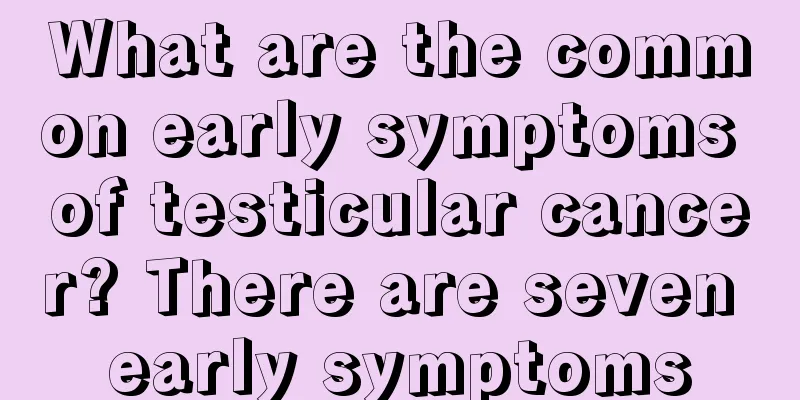Dietary considerations for patients with esophageal cancer after surgery

|
Esophageal cancer is a malignant tumor that can cause great inconvenience to the patient's diet. Because the lesion is in the esophagus and an incision must be made in the esophagus during surgery, the patient will not be able to eat normally for a long time after surgery. At this time, it is necessary to understand how to provide dietary care and related precautions for postoperative esophageal cancer patients. The wound recovery period for patients undergoing esophageal cancer surgery is about one month. Dietary conditioning during this period is crucial. A good diet can help patients recover better. At this time, the principle of gradual progress and small meals should be adhered to to promote the recovery of patients' digestive function. Irritating foods and condiments should be avoided, and the food temperature should be appropriate, and it should be soft rather than hard. The patient's diet should be arranged according to the postoperative recovery pattern, that is, intestinal motility should be restored 3 to 4 days after surgery. If a gastric tube or feeding tube is left in, nutrient solution can be fed through nasogastric tube. At the same time, the patient should be encouraged to get out of bed and do simple activities; on the 5th day, a residue-free liquid diet, mainly water, can be eaten; on the 6th day, a liquid diet, mainly rice juice, can be eaten; on the 7th day, fish soup, meat soup, or porridge can be eaten; after 2 weeks, thin and mushy meals can be eaten; after 3 weeks, ordinary meals can be eaten, such as rice, steamed buns, and easily digestible vegetables and meat. After esophageal cancer surgery, patients should mainly eat foods containing protein, fat, vitamins, carbohydrates, amino acids and other nutrients needed by the human body, as well as foods that can increase the body's immunity, which can speed up the patient's recovery; and avoid eating irritating foods and foods that are too salty, too sweet, too cold, or too hot. |
<<: 3 issues that lung cancer patients should consider during chemotherapy
>>: How to avoid damage to skin integrity in laryngeal cancer patients
Recommend
Are radiation protection suits effective?
For many pregnant women, there are indeed many di...
The most important cause of gastric cancer
Among the many cancer diseases, gastric cancer is...
What kind of cup should I use to serve juice?
Cups are essential daily necessities in life. We ...
What to do if your eyes are dull when taking photos
Usually we take photos to keep memories, especial...
What to eat for ischemia in the heart
Cardiac ischemia, also known as myocardial ischem...
The best treatment for burns, save it now!
As the weather becomes colder in winter, people a...
What to do if Streptococcus agalactiae is positive again and again
Many people have not heard of the name Streptococ...
What are the effects, functions and contraindications of sea cucumbers?
Seafood has been endowed with magical colors in a...
Is it good for pregnant women to eat quail eggs?
Many pregnant women need to pay special attention...
What can I eat to relieve fatigue when I am tired
After a day of high-pressure work and study, the ...
How much does it cost to treat melanoma
How much does it cost to treat melanoma? This is ...
What are the symptoms of alcoholic liver disease?
The occurrence of alcoholic liver disease can hav...
How does TCM treat liver cancer based on syndrome differentiation
Traditional Chinese medicine has always emphasize...
What types of dentures are there
Once there is a problem with teeth, it will bring...
4 signs before death from advanced lung cancer
Common signs of advanced lung cancer include dysp...









